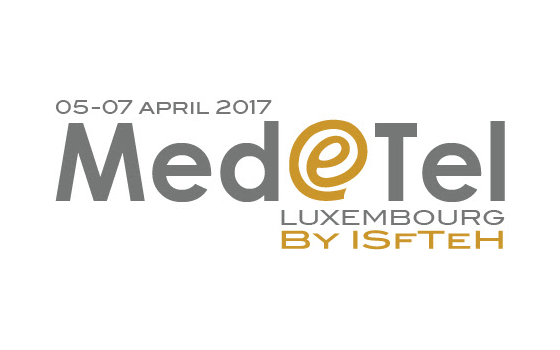 5 - 7 April 2017, Luxembourg.
5 - 7 April 2017, Luxembourg.The Med-e-Tel 2017 conference program features to a large extent presentations of practical and daily experiences with telemedicine/telehealth services and m/eHealth solutions, presented by doctors, nurses, midwives, pharmacists, IT specialists, and user/patient advocates. Combined with presentations of current project results and basic research, this makes the Med-e-Tel conference a must-attend event if you are involved in telemedicine/telehealth service provision or interested in finding out how it works in practice and what the opportunities are for embedding m/eHealth solutions in mainstream care delivery.
The main Med-e-Tel conference program runs from April 5th till April 7th. The event also features 2 pre-conference sessions on the afternoon of April 4th, on the topics of "Telecardiology" and "Social Media & Beyond: The Interaction Between Patients and Health Professionals".
Early-bird registration for Med-e-Tel 2017 is ending next week. Register now and gain access to all conference sessions and to the expo/networking area, as well as two evening networking receptions. There are also options for 1-day registration. Fees and conditions can been found here. Save up to 25% by registering now.
For further information, please visit:
https://www.medetel.eu
About Med-e-Tel
Med-e-Tel is an event of the International Society for Telemedicine & eHealth (ISfTeH), THE international federation of national associations who represent their country's Telemedicine and eHealth stakeholders.
The ISfTeH exists to facilitate the international dissemination of knowledge and experience in Telemedicine and eHealth, to provide access to recognized experts in the field worldwide, and to offer unprecedented networking opportunities. Med-e-Tel is one of the instruments that help the ISfTeH to realize this mission.
In collaboration with our partner organizations, Med-e-Tel 2017 (5-7 April 2017) will feature international experts and users who will present their experiences with current telemedicine and eHealth applications and future developments (virtual consultation, remote monitoring, eLearning, mobile solutions, health information exchange, smart technologies, business models, health economics, user needs/satisfaction, and more).